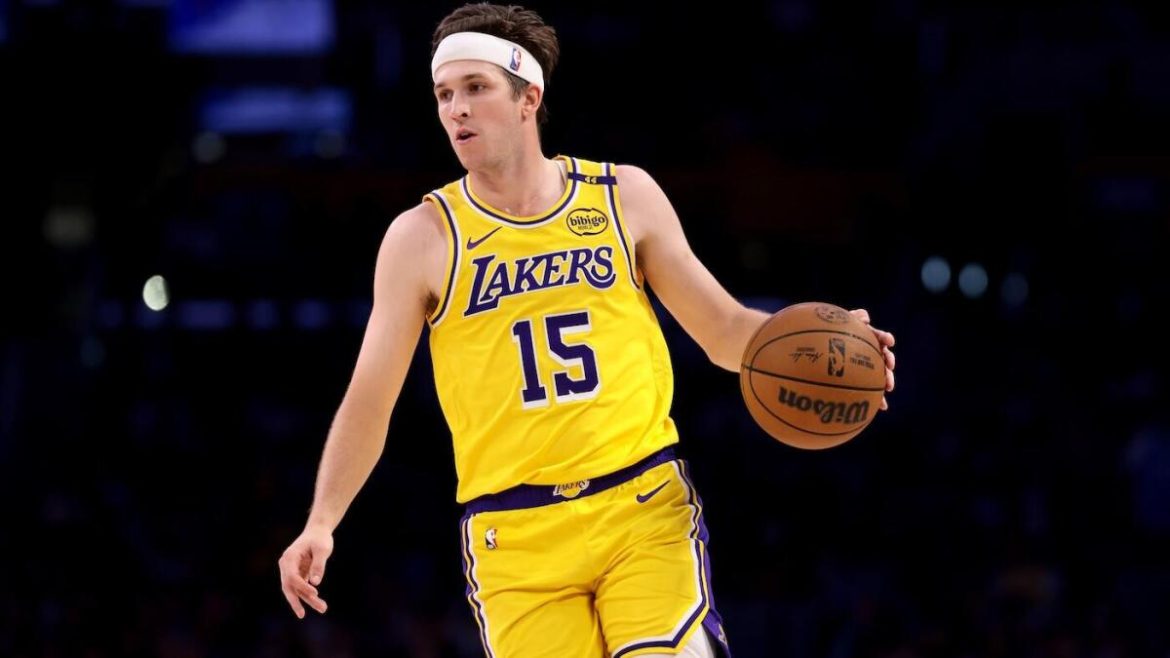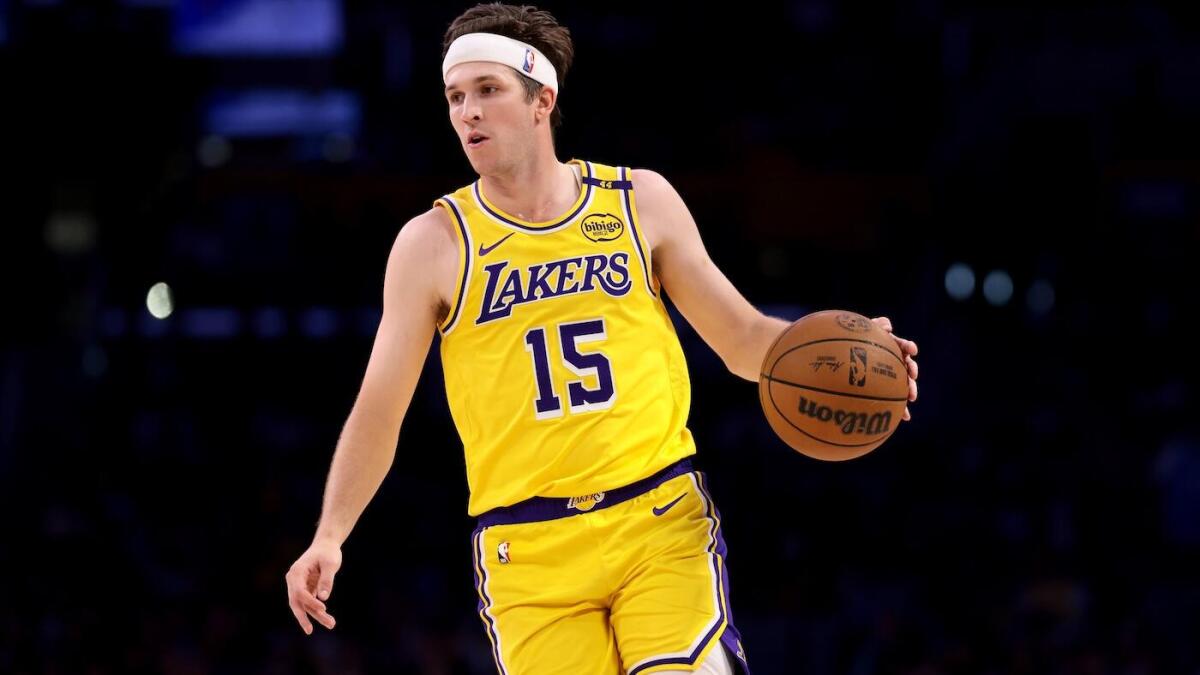Austin Reaves’ decision to decline an $89.2 million contract extension with the Los Angeles Lakers has sent shockwaves through the NBA. This move, while financially risky, underscores a broader shift in how players and teams approach contract negotiations in today’s league. Reaves, an undrafted guard who has become a cornerstone of the Lakers’ lineup, is betting on his future value to exceed the current offer. His decision reflects not just personal ambition but also a strategic understanding of the NBA’s financial landscape.
Reaves’ journey from an undrafted free agent to a key player for a championship contender is a testament to his work ethic and adaptability. His performance—averaging around 15 points, 5 assists, and 4 rebounds per game last season—has solidified his role as a reliable starter alongside LeBron James and Anthony Davis. His ability to shoot, defend, and facilitate makes him a versatile asset in the modern NBA. By declining the extension, Reaves is essentially betting on himself to continue improving and increasing his market value. If he stays healthy and maintains his current level of play, he could command a significantly higher contract in unrestricted free agency in 2025.
The financial implications of Reaves’ decision are substantial. Under the current Collective Bargaining Agreement (CBA), the Lakers could only offer him a four-year, $89.2 million extension due to his salary history. However, if Reaves enters unrestricted free agency in 2025, he could potentially secure a contract worth over $100 million, possibly even approaching $30 million per year. This is a calculated risk, as injuries or a decline in performance could diminish his earning potential. But given his trajectory, the upside is enticing. Reaves’ decision mirrors a growing trend in the NBA, where players are increasingly opting to bet on their future rather than locking in early.
For the Lakers, Reaves’ decision presents both opportunities and challenges. On one hand, his current contract—$13.5 million for the 2024-25 season and $14.9 million for the 2025-26 season—is a steal for a starting-caliber guard. This financial flexibility allows the Lakers to maintain their contender status while also positioning themselves for the future. However, the Lakers must now navigate the delicate balance of retaining Reaves beyond 2025. If the team struggles or fails to meet expectations, Reaves could become a prime trade candidate, especially as his value continues to rise. The Lakers’ front office will need to carefully weigh the benefits of keeping Reaves against the potential of trading him for assets that could help them rebuild or retool.
Reaves’ decision also highlights the evolving dynamics of player-team relationships in the NBA. The traditional narrative of undrafted players “owing” their teams for believing in them is increasingly being challenged. Players like Reaves are recognizing their market value and leveraging it to secure the best possible deals. This shift is part of a broader trend where players are taking control of their careers, often prioritizing financial security and role definition over loyalty to a single franchise. The Lakers, as a storied franchise, may assume they can retain Reaves, but recent history suggests that even homegrown talent can be lured away by better offers.
The fan reaction to Reaves’ decision has been mixed. While some Lakers supporters express frustration at the possibility of losing a key player, others understand the business side of the decision. Reaves’ bet on himself resonates with the athlete’s ethos of self-belief and ambition. For the Lakers, the challenge will be to convince Reaves that the franchise is the best place for him to achieve his long-term goals. This will require not just competitive success but also a clear vision for the future that aligns with Reaves’ aspirations.
Looking ahead, Reaves’ decision will have ripple effects across the league. Teams with cap space in 2025 will be closely monitoring his performance, as he could become a prime target in free agency. The Lakers, meanwhile, will need to navigate the delicate balance of contending now while also planning for a future beyond James and Davis. Reaves’ decision is a reminder that in the modern NBA, no player’s future is ever truly certain until the ink dries on a contract.
In conclusion, Austin Reaves’ decision to decline an $89.2 million extension is a bold move that reflects both his confidence in his abilities and a strategic understanding of the NBA’s financial landscape. For the Lakers, this decision presents both opportunities and challenges, as they must balance immediate success with long-term planning. Reaves’ bet on himself is part of a broader trend in the NBA, where players are increasingly taking control of their careers and prioritizing their market value. As the league continues to evolve, the dynamics of player-team relationships will remain a key factor in shaping the future of the game.





